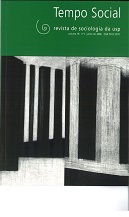French-style flexibility: workers at the Brazilian Peugeot Citröen plant
DOI:
https://doi.org/10.1590/S0103-20702006000100007Keywords:
PSA Peugeot Citroën, Workers, Labour Relations, UnionsAbstract
The article discusses the effects of the recent process of flexibilization in industrial (automobile) production on labour relations, on workers and their unions. As an example, the authors examine the first Brazilian plant to be opened by the French manufacturer PSA Peugeot Citroën, installed in Porto Real, Rio de Janeiro, in 2001. They argue that the construction of a 'shrunk' and restructured plant - a project designed to move beyond Fordist organization as an integral part of a global productive chain - reconfigures the relations with workers (and with the union) in the factory space by creating the demand for higher levels of schooling, a greater capacity to adapt to new technologies, and new forms of organizing production. However, these relations maintain authoritarian practices while preventing the reproduction of previous forms of worker resistance. The debate benefits from the research on the same company conducted by Michel Pialoux and Stéphane Beaud, who have analyzed its managerial transformations over the last few decades and the impact on the lifestyles of different generations of workers.Downloads
References
ANFAVEA. (2003), Anuário Estatístico. São Paulo.
ARBIX, G. (2000), “Guerra fiscal e competição intermunicipal por novos investimentos no setor automotivo brasileiro”. Dados, 1 (43), Rio de Janeiro.
ARBIX, G. & ZILBOVICIUS, M. (1997), De JK a FHC – a reinvenção dos carros. São Paulo, Scritta.
BEAUD, Stéphane & PIALOUX, Michel. (2004), Retour sur la condition ouvrière: enquête aux usines Peugeot de Sochaux-Montbéliard. Paris, Fayard.
DIEESE, CUT-CMN, SINDICATO DOS METALÚRGICOS DO ABC. (2003), Do holerite às compras: remuneração, preços e poder aquisitivo do tempo de trabalho em 17 municípios com produção automobilística no Brasil. São Paulo, SMABC.
GORGEU, Armelle; MATHIEU, Rene & PIALOUX, Michel. (1998), Organisation du travail et gestion de la main-d’oeuvre dans la filière automobile. Paris, Documentation Française, 12.
HATZFELD, Nicolas. (2002), Les gens d’usine. 50 ans d’histoire à Peugeot-Sochaux. Paris, L’Atelier.
HATZFELD, Nicolas. (2004), “Engagements en mouvance: l’action sociale et politique de catholiques à Sochaux-Montbéliard (années 1950–années 1990)”. Trabalho apresentado no colóquio “Syndicats et associations en France: concurrence ou complementarité?”. Centre de Histoire Sociale, Universidade Paris I, Paris NABUCO, M. R.; NEVES, Magda de A. & CARVALHO NETO, Antonio M. de (orgs.). (2002), Indústria automobilística: a nova geografia do setor produtivo. Rio de Janeiro, DP&A.
PIALOUX, Michel & COROUGE, Christian. (1984), “Chronique Peugeot”. Actes de la recherche en sciences sociales. Paris, EHESS/Ed. de Minuit, n. 52-53, pp. 88-95; n. 54, pp. 57-69.
PIALOUX, Michel & COROUGE, Christian. (1985), “Chronique Peugeot”. Actes de la recherche en sciences sociales. Paris, EHESS/Ed. de Minuit, n. 57-58, pp. 108-128; n. 60, pp. 72-74.
RAMALHO, José Ricardo. (1999), “Organização sindical e a instalação de novas fábricas do setor automotivo: o caso do sul fluminense”. In: RODRIGUES, I. Jácome (org.). Novo Sindicalismo vinte anos depois. Rio de Janeiro/São Paulo, Vozes/Educ/Unitrabalho.
RAMALHO, José Ricardo & SANTANA, M. A. (2001), “The VW’s modular system, regional development and workers’ organisation in Resende, Brazil”. 9th Gerpisa International Colloquium. Paris, 7-9 de junho de 2001.
RAMALHO, José Ricardo & SANTANA, M. A. (2002), “A indústria automobilística no Rio de Janeiro: relações de trabalho em um contexto de desenvolvimento regional”. In: NABUCO, M. R.; NEVES, Magda de A.
& CARVALHO NETO, Antonio M. de. (orgs.). Indústria automobilística: a nova geografia do setor produtivo. Rio de Janeiro, DP&A.
SANTANA, M. A. (2000), “Trabalho, trabalhadores e sindicatos em meio ao vendaval contemporâneo”. Dados, 2 (43), Rio de Janeiro.
Downloads
Published
Issue
Section
License
Copyright (c) 2015 Tempo Social

This work is licensed under a Creative Commons Attribution-NonCommercial 4.0 International License.


